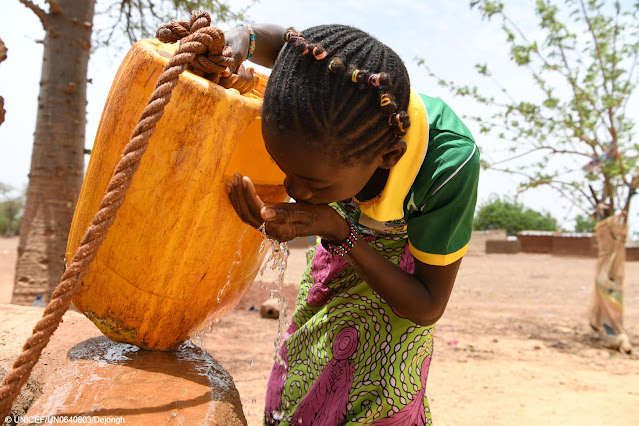 |
| Water Crisis |
In today's rapidly
changing world, few issues are as pressing as the looming water crisis. It's a
global problem that transcends boundaries, affecting millions of lives,
ecosystems, and economies. In this comprehensive article, we delve deep into
the multifaceted dimensions of the water crisis, shedding light on its causes,
consequences, and potential solutions.
Introduction
The world is
facing a water crisis of unprecedented proportions. As a precious and finite
resource, water is essential for all life forms and is a cornerstone of
sustainable development. Yet, access to clean and safe water is becoming
increasingly scarce, posing a significant threat to our planet's well-being.
Understanding the Water Crisis
What
is the Water Crisis?
The water crisis
can be defined as a situation where there is inadequate access to clean, safe,
and sufficient water resources to meet the basic human needs of a population.
It encompasses various aspects, including water scarcity, water pollution, and
inadequate water infrastructure.
Causes of the Water Crisis
1. Overpopulation:
The world's
population continues to grow, placing immense pressure on available water
resources. As more people demand water for drinking, agriculture, and
industrial processes, the strain on water sources intensifies.
2. Climate
Change:
Altered weather
patterns, prolonged droughts, and increased temperatures due to climate change
exacerbate water scarcity. These changes disrupt natural water cycles and
reduce the availability of freshwater.
3. Water
Pollution:
Industrial discharge, agricultural runoff, and
improper waste disposal contaminate water sources. This pollution not only
makes water unsafe to drink but also harms aquatic ecosystems.
Inefficient Water Use: Wasteful water
practices in agriculture, industry, and households lead to the inefficient use
of available water resources.
Consequences of the Water
Crisis
Human Impact
1. Health Implications:
Lack
of access to clean water results in waterborne diseases, leading to sickness
and death, particularly among vulnerable populations.
2. Food Security:
Water
scarcity affects crop yields, compromising food production and security.
3. Economic Costs:
The water crisis
imposes significant economic burdens, from increased healthcare expenses to
reduced agricultural productivity.
Environmental Impact
1. Ecosystem Disruption:
Depleted water
sources harm aquatic ecosystems, leading to the decline of various species.
Loss of Biodiversity: Water scarcity affects freshwater and marine biodiversity, endangering many species.
2. Erosion and Land Degradation:
Reduced water flow
contributes to erosion and land degradation, impacting terrestrial ecosystems.
Solutions to the Water Crisis
Sustainable
Water Management
Efficient
Irrigation: Implementing modern and efficient irrigation techniques in
agriculture can reduce water wastage.
1.
Investing in
Infrastructure:
Developing and
maintaining water infrastructure, such as dams and pipelines, can improve water
supply reliability.
2.
Water Recycling:
Promoting water
recycling in industrial processes can reduce pollution and conserve water.
Climate Change Mitigation
1. Reducing Emissions:
Efforts to reduce
greenhouse gas emissions can mitigate the impacts of climate change, including
water scarcity.
2. Adaptation Strategies:
Developing
strategies to adapt to changing climate patterns is crucial to managing water
resources effectively.
Education and Awareness
1. Promoting Water Conservation: Public awareness
campaigns can encourage responsible water use in households and industries.
2. Educating Communities: Providing
education on water management and sanitation is essential, especially in
underserved areas.
Conclusion
The water crisis
is a complex and urgent issue that requires immediate attention and concerted
efforts from governments, organizations, and individuals worldwide.
Understanding its root causes, far-reaching consequences, and potential
solutions is the first step towards addressing this critical challenge.
By taking proactive measures to conserve water, reduce pollution, and combat climate change, we can pave the way for a more sustainable future. The time to act is now, as our planet's fate and future generations' well-being depend on our ability to safeguard this precious resource.
By: Abdul
Hameed
Kolowa


0 Comments
Post a Comment